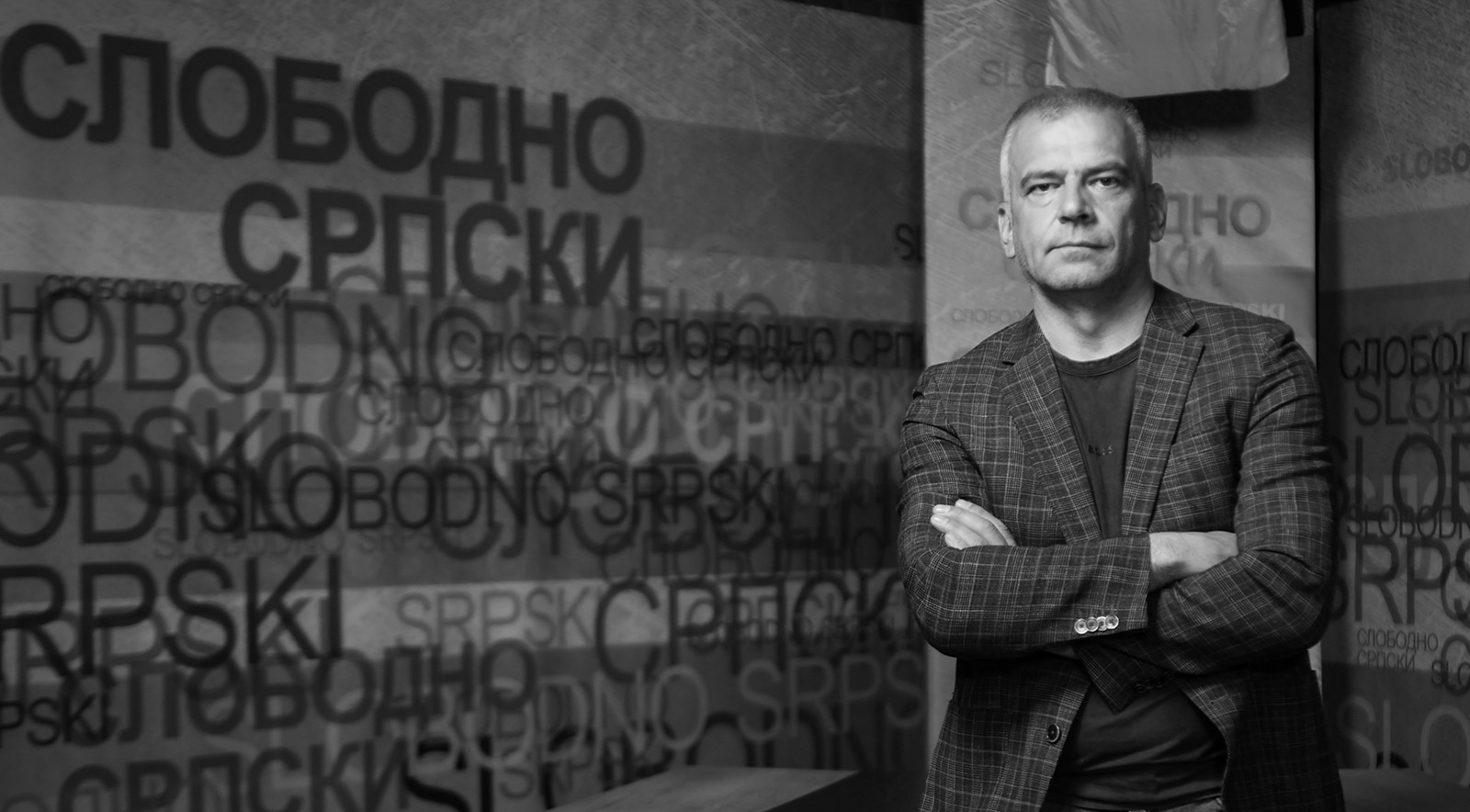
A mere seven kilometres south of Kosovo’s capital Pristina, Čaglavica is a village with a significant ethnic Serb population. For the past fifteen years, it has also been home to a one-of-its-kind media project building bridges between different ethnic communities in Kosovo*. Media Center Čaglavicawas founded in 2008.
Headed by veteran journalist Budimir Ničić, the Media Center aims to provide unbiased, professional, and accurate journalism, with a vision of promoting democratic values and bringing together different ethnic communities.
“We were the first to host public debates with representatives from all communities,” says Budimir, “Serbs, Albanians, and the international community were sitting at the same table, discussing common issues in their mother tongue, without prejudice or fear.”
Over the years, the centre has hosted more than 600 debates in Albanian and Serbian, with simultaneous interpreting always provided and these are followed by journalists from Serbian, Albanian, and international media.
The centre has also produced more than 50 documentaries as well as hundreds of short videos, reports, and TV shows. Its flagship programme is “Slobodno Srpski” (“Freely in Serbian”), a show with studio interviews, expert debates, and coverage from the field on politics, economy, society, and culture. Broadcast on six different TV stations, including public stations with national coverage, Slobodno Srpski is the most popular Serbian language show in Kosovo. To date, it has produced over 400 editions.
Despite its successes, the Media Center Čaglavica faces a common challenge for independent media in the Western Balkans: a lack of a stable revenue stream.
“It’s very hard to sell our show to TV stations, because the stations themselves are struggling to stay afloat,” explains Budimir. “Apart from one public channel, the vast majority of Serbian-language media in Kosovo rely on donors to exist.”
He also admits that the bureaucracy of applying for donor funding can be daunting, and, with a team of only seven people, Budimir is a busy man juggling four jobs including fundraiser and project manager, journalist and host.
Financial challenges were exacerbated by the Covid-19 pandemic, when most foreign donors shifted their attention to healthcare funding. Last year, the Media Center was on the verge of bankruptcy, and there was talk of closing it for good as the team worked for three months without a salary, barely able to cover basic operational costs.
An EED emergency grant helped the center stay afloat, and allowed them to restart the production of Slobodno Srpski, which had been halted due to lack of funding.
“EED did not just read our application, they actually took time to understand our work on the ground and what we’ve achieved during the past 15 years. It took time to adapt to our specific circumstances.”
Now the centre is thinking about a longer-term financial strategy, planning to diversify donors, to offer video editing services, and to rent out its conference room for events.
Financial insecurity also makes it hard to retain talented journalists, who often quit to join international organisations offering higher salaries. The issue is further complicated by the Media Center being a minority media outlet - Serbs in Kosovo make up only 5 percent of the population and few are qualified journalists.
Despite such challenges, the centre occupies a unique niche within Serbian-speaking media in Kosovo.
This is vital as media produced in Belgrade represent the main source of information for Serbian speakers throughout the Balkans, and as media freedom in Serbia continues to decline these media outlets can represent a source of misinformation and disinformation. In contrast, the Media Center offers a locally produced, locally focused alternative for Serbian speakers in Kosovo, tailored to their needs.
“There is no pluralism in the Serbian community in Kosovo. The mayors of Serbian villages are all under the Srpska Lista party, which is under full control of Belgrade,” says Budimir. “As a media, it is our duty to provide alternative points of view to our community, and we regularly invite representatives of less-known political parties to our TV programmes.”
Journalists from the Media Center also act as watchdogs for the administrators of Serbian-speaking municipalities, investigating any cases of misspent funds.
“We do small things, but we’re also changing things. We get results. If local politicians are careful about what they do, it’s because we are here checking on their work.”
* This designation is without prejudice to positions on status, and is in line with UNSC 1244 and the ICJ Opinion on the Kosovo Declaration of Independence.
This article reflects the views of the grantees featured and does not necessarily represent the official opinion of the EED.
Picture credits: Samir Karahoda